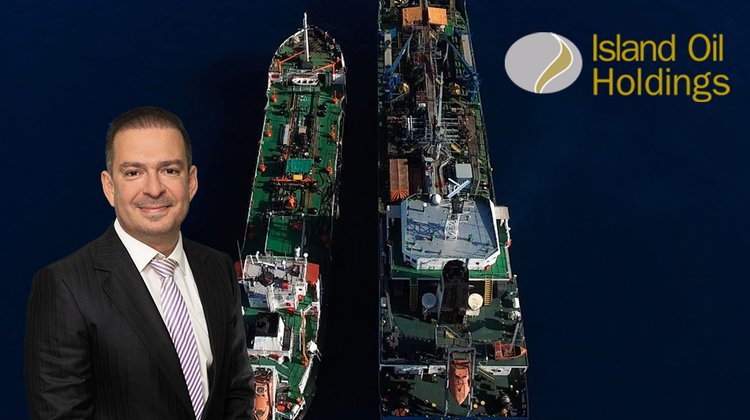Aris Athanasiades: The new tariffs are not just trade policy, they are catalysts for lasting shifts in global logistics
07:16 - 10 April 2025

“The latest round of US tariffs and the increasing likelihood of reciprocal action from key trading partners is once again placing global shipping under stress,” Island Oil Holdings CFO Aris Athanasiades notes.
He was speaking to CBN just before US President Donald Trump authorised a 90-day tariffs pause on most countries except China. CBN had asked Athanasiades to comment on the recent developments and their impact on the world’s shipping sector.
“As political leaders pursue protectionist agendas and economic leverage, the maritime industry finds itself navigating a sea of uncertainty, with implications that go well beyond headline trade statistics,” Athanasiades explains.
As the expert elaborates, tariffs, by design, suppress demand for imported goods by making them more expensive. “For shipping lines, freight forwarders, ports, and bunker suppliers, this translates into fewer shipments, disrupted trade flows, and elevated operational risk. But beyond the immediate impact on cargo volumes lies a more complex reshaping of global logistics networks,” Athanasiades says.
Trade Patterns in Flux
He also points out that one of the clearest consequences of new tariff regimes is the shift in sourcing. “US importers are already pivoting from China to countries like Vietnam, India, and Mexico to reduce exposure to duties. As supply chains adjust, shipping routes will follow suit, resulting in significant implications for East-West trade lanes. For example, Transpacific corridor may see volume contraction, while intra-Asia and Latin American lanes grow in strategic importance,” Athanasiades explains.
This realignment also affects port activity. As the CFO elaborates, “Major container ports in the US and China could face declining throughout, while previously secondary ports in Southeast Asia may experience capacity pressure. Such shifts require rapid adaptation in terminal operations, hinterland infrastructure, and customs processing.”
Volatility in Freight rates
According to Athanasiades, freight rates are expected to remain volatile. “With reduced demand on traditional lanes, carriers may face downward pressure on spot rates particularly for containerized goods, which are often tariff targets. In response, carriers are likely to implement blank sailings, reduce available capacity, or even restructure service loops. While this may stabilize pricing, it risks further undermining schedule reliability, already strained by post-pandemic disruptions,” he explains.
He also notes that, simultaneously, container imbalances could become more pronounced. “Changes in trade flows can lead to surpluses of empty containers in regions with diminished exports, while rapidly growing markets may face shortages. Repositioning costs for containers and the associated logistical effort will likely rise, impacting both cost structures and service timelines,” Athanasiades says.
Impact on Bunkering and Emissions
According to the expert, for the bunkering sector, the effects are both direct and indirect. He explains, “As shipping patterns shift, fuel demand will move with them. Bunkering hubs that once thrived on high-volume trade routes may see reduced demand, while emerging ports may face challenges scaling up fuel supply infrastructure. Additionally, longer trade routes where suppliers move away from tariffed partners can increase voyage durations, pushing up fuel consumption.”
Athanasiades also points out that this increase runs counter to global decarbonisation efforts. He elaborates, “The shipping industry, under pressure to meet its emissions targets and develop green fuel alternatives, could see some of its momentum stalled as focus shifts to cost control amid tariff-induced revenue pressures. Green investments, such as dual-fuel vessels and infrastructure for alternative fuels, may be deferred if margins tighten.”
A Call for Strategic Agility
“The broader lesson for the shipping industry is the need for agility. Companies must be prepared to reallocate assets, revise deployment strategies, and enhance real time data capabilities to anticipate trade changes,” Athanasiades continues.
“In a world where politics and economics intersect more aggressively, global shipping can no longer rely on the assumptions of free-flowing trade. The new tariffs are not just trade policy, they are catalysts for lasting shifts in global logistics, with winners and losers emerging not just from cost structures, but from adaptability and foresight,” he concludes.

